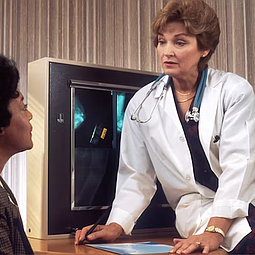New Guidance on Latest Treatments for Early Alzheimer’s Disease
September 11, 2023 at 5:49 p.m.
New therapies for early Alzheimer’s disease are changing how patients are being managed. Monoclonal antibodies that remove amyloid-β plaques in the brain are bringing new hope to people whose lives have been affected by Alzheimer’s disease. Now, the American Academy of Neurology (AAN) has developed new guidelines for patients. The guidelines are derived from expert consensus about new and emerging therapies.
“Neurologists care for millions of people with Alzheimer’s disease and many people with early forms of dementia are eager to learn if these new therapies could help them,” said AAN president Dr. Carlayne E. Jackson. “To help neurologists provide the highest quality care, experts with the American Academy of Neurology have summarized the available evidence on anti-amyloid monoclonal antibodies so that neurologists, patients and their caregivers can make informed decisions together about possible treatment with these therapies.”
The guidelines provide the latest available information on lecanemab, aducanumab and donanemab. “Recent data on lecanemab and other monoclonal antibody infusions targeting amyloid-β protein make clear that new agents are highly likely to be part of the toolkit for neurologists caring for people with Alzheimer’s disease,” said Dr. Vijay K. Ramanan with the Mayo Clinic in Rochester, Minnesota.
Lecanemab received traditional FDA approval on July 6, 2023. Aducanumab received accelerated approval from the FDA in June 2021, but has not yet received traditional approval. Aducanumab is available only to individuals participating in a clinical trial. Donanemab is not yet approved, but a decision on traditional FDA approval is expected within the next 4 months. All of these agents are administered through regular infusions and monitoring with multiple brain scans.
Currently, only individuals with early symptomatic forms of the disease, mild cognitive impairment or mild dementia due to Alzheimer’s disease, may qualify to receive lecanemab. There is a concern that some patients may take these drugs inappropriately out of desperation. Neurologists says all older adults should be counseled about certain genetic risk factors and must not have a history of strokes.
If a person is taking certain anticoagulant medications that are commonly prescribed to older adults, they may not be eligible. The goal of using these therapies is to remove amyloid-β plaques and slow cognitive decline.
While these new therapies are not a cure for the disease, there is reason for optimism as there are dozens of very promising new agents in the development stage.
John Schieszer is an award-winning national journalist and radio and podcast broadcaster of The Medical Minute. He can be reached at medicalminutes@gmail.com.





